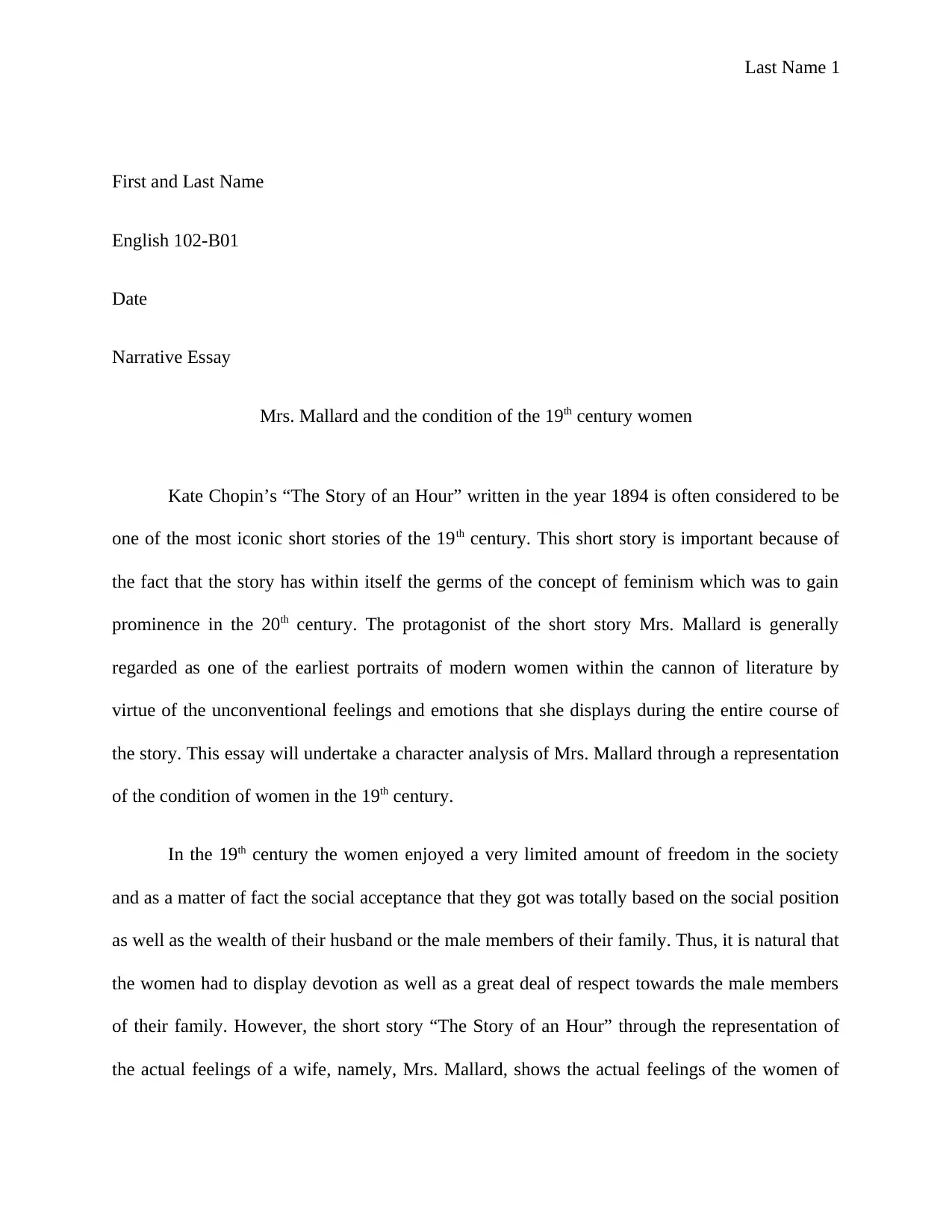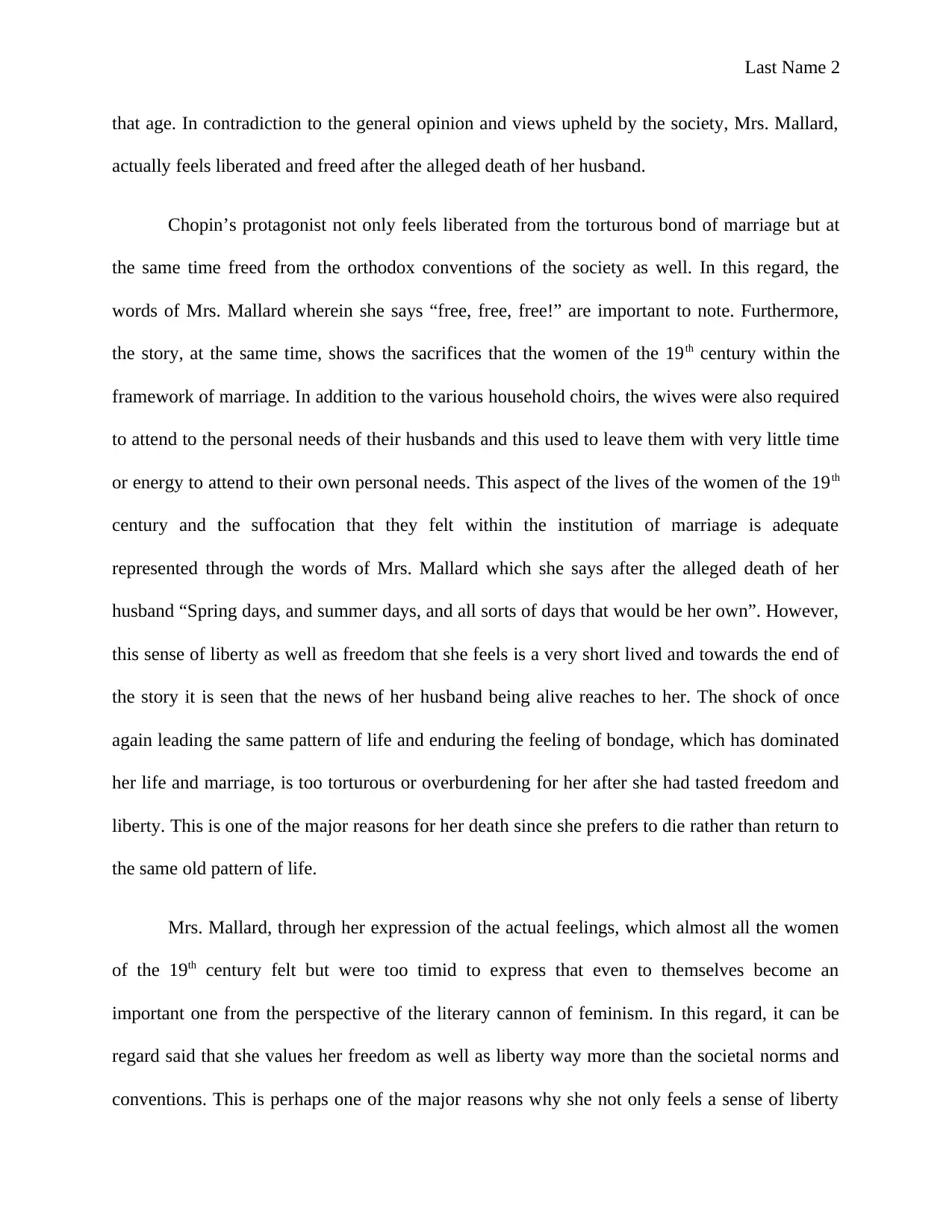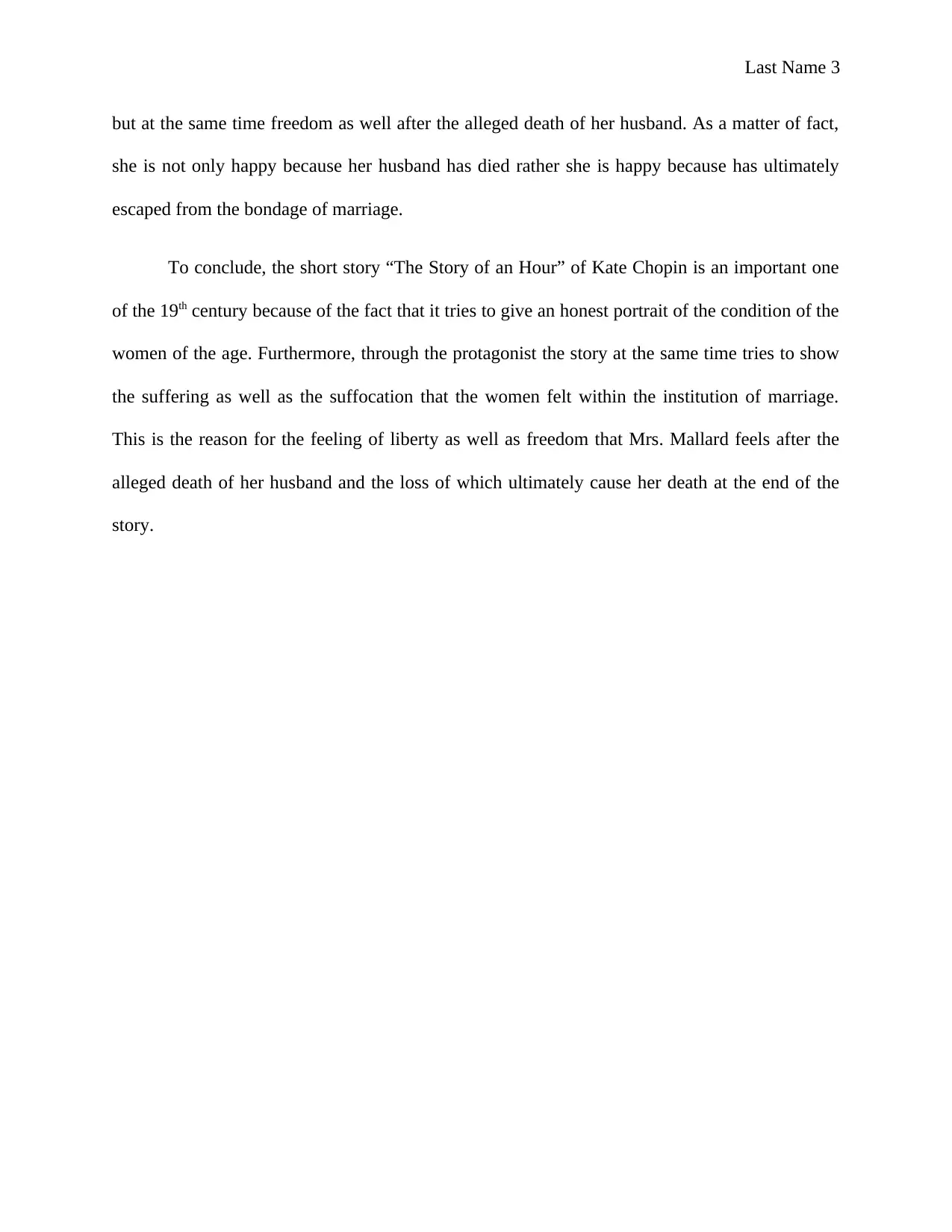English 102-B01: Mrs. Mallard and 19th Century Women
VerifiedAdded on 2023/06/04
|4
|857
|361
Essay
AI Summary
This essay undertakes a character analysis of Mrs. Mallard from Kate Chopin's 'The Story of an Hour,' examining her feelings and experiences within the context of 19th-century societal constraints on women. The essay explores Mrs. Mallard's reaction to her husband's supposed death, highlighting her feelings of liberation and freedom from the institution of marriage and societal expectations. It contrasts her internal emotions with the external pressures faced by women of that era, emphasizing the sacrifices and limitations imposed on them. The essay concludes by suggesting that Mrs. Mallard's death is a result of her inability to return to the suffocating life she once knew, making her a significant figure in the early development of feminist thought. This essay provides a detailed overview of the story and its themes.
1 out of 4











![[object Object]](/_next/static/media/star-bottom.7253800d.svg)